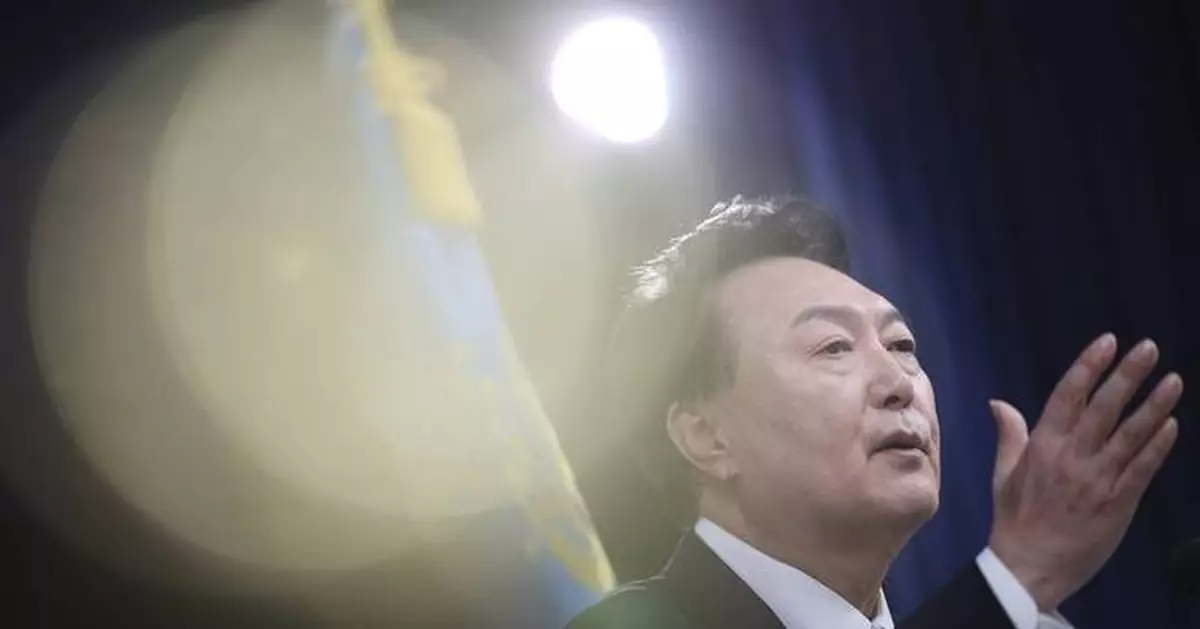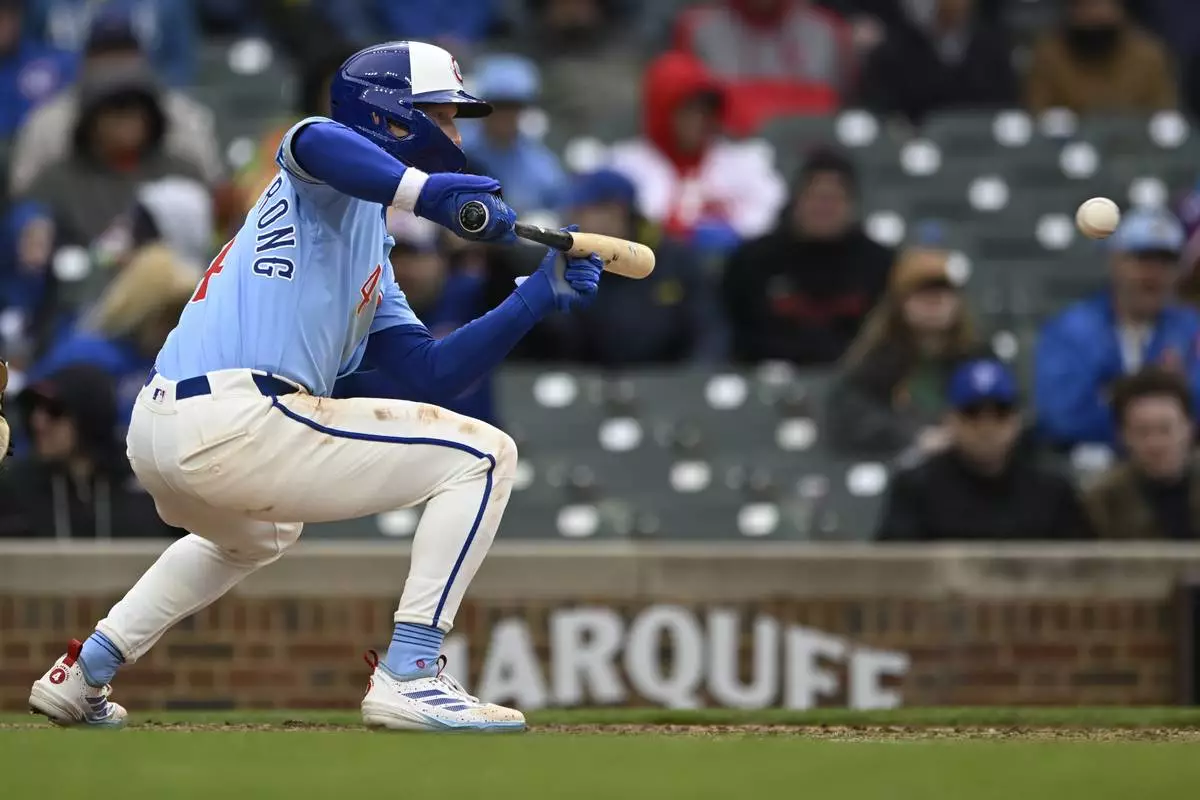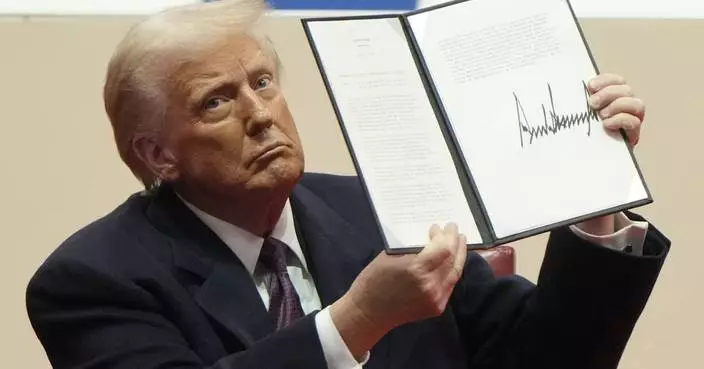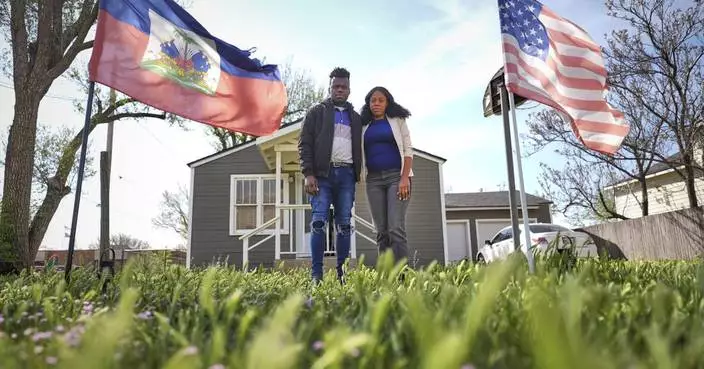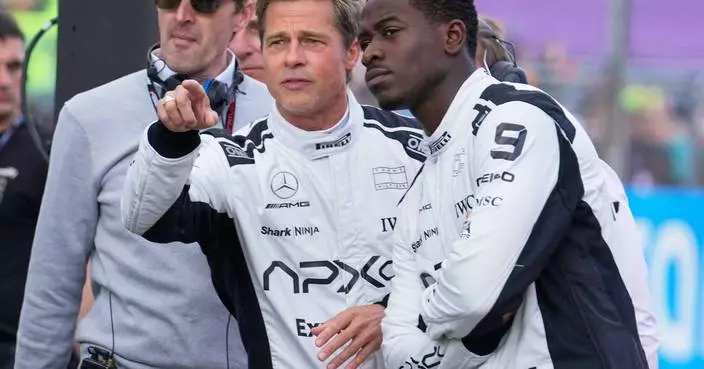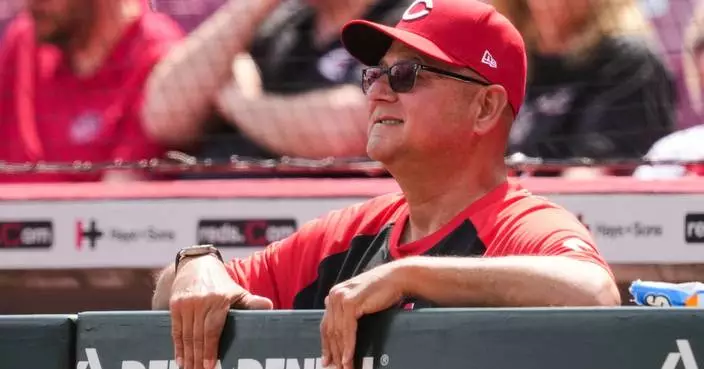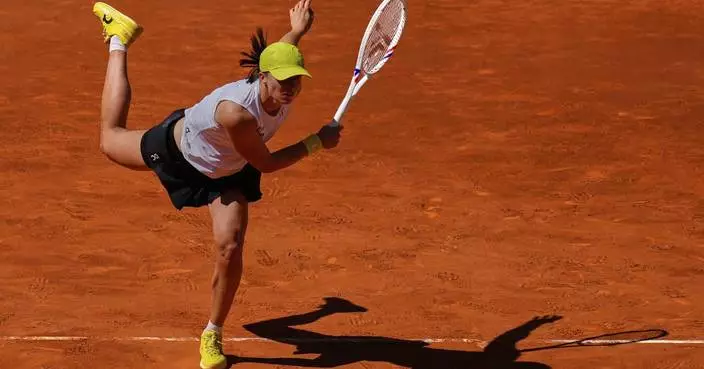SEOUL, South Korea (AP) — South Korean President Yoon Suk Yeol denied wrongdoing on Thursday in a burgeoning influence-peddling scandal involving him and his wife that is severely hurting his approval ratings and providing political munition to his rivals.
The political firestorm coincides with South Korea facing a slew of critical foreign policy issues, such as Donald Trump’s election win to become the next president of the United States and North Korea’s reported entry into the Russia-Ukraine war.
The scandal centers around allegations that Yoon and first lady Kim Keon Hee exerted inappropriate influence on the conservative ruling People Power Party to pick a certain candidate to run for a parliamentary by-election in 2022 at the request of Myung Tae-kyun, an election broker and founder of a polling agency who conducted free opinion surveys for Yoon before he became president.
For weeks, the scandal has been making headlines in South Korea as Myung's leaked phone conversations show he boasted of his influence over the presidential couple and other top ruling party officials.
Asked about his ties with Myung during a news conference Thursday, Yoon said, “I didn’t do anything inappropriate and have nothing to hide regarding Myung Tae-kyun.”
Yoon said he has never meddled in any candidate nomination process at the PPP, and had never asked Myung to carry out surveys for him, though he acknowledged that Myung gave him some sort of help during his presidential primary campaign in 2021.
The main liberal opposition Democratic Party said Yoon's response only showed his “arrogance" and “self-righteousness." The party earlier demanded Yoon apologize, reshuffle top officials and accept an independent investigation into his wife.
The Democratic Party recently shared what it said was an audio file of phone calls between Yoon and Myung on May 9, 2022 — a day before Yoon took office for a single five-year term. The opposition party alleges that the conversation proves Yoon provided Myung with political favors in return for free surveys.
In the audio file, Yoon can be heard telling Myung that he asked a PPP committee to pick senior party member Kim Young-sun to run for one of the parliamentary by-elections the following month. Kim Young-sun eventually obtained the party’s nomination and won the election.
In the file, Myung is heard saying, “I really won’t forget this favor for my entire life. Thank you!”
South Korea’s election law bars public servants, including the president, from interfering in elections, but applies no such restrictions to a president-elect, so it's unclear whether Yoon violated the law.
Recent surveys showed Yoon's approval rating has fallen below 20% for the first time since his inauguration. Kim Keon Hee has been grappling with other scandals, such as spy camera footage purportedly showing her accepting a luxury bag as a gift from a pastor.
Yoon apologized for causing public concerns about him and his wife, but stressed that many of the allegations raised were not consistent with the facts.
Some ruling party lawmakers have accused the Democratic Party of deliberately ramping up political attacks on Yoon and his wife in an effort to rescue its embattled leader, Lee Jae-myung, from legal troubles.
Lee, a firebrand lawmaker who narrowly lost to Yoon in the 2022 presidential election, is undergoing four separate trials over corruption and various other allegations. The first two district court rulings on Lee over his election law violation and perjury charges are set for Nov. 15 and Nov. 25.
Either a prison sentence or a fine of more than 1 million won ($750) in the election law case would unseat Lee as a lawmaker and disqualify him from running in elections for five years, although he is likely to appeal any guilty verdict.
Surveys show Lee is the early favorite for the 2027 presidential race to succeed Yoon.
On foreign policy, Yoon — who has worked closely with Washington and Tokyo to solidify security cooperation in the face of North Korean threats — expressed optimism that the three-way partnership will continue to expand under Trump’s government. He said he wants to meet Trump and new Japanese Prime Minister Shigeru Ishiba soon to coordinate policies.
During his previous presidency, Trump engaged in highly orchestrated nuclear summits with North Korean leader Kim Jong Un. Yoon noted that North Korea’s arsenal has significantly advanced since Trump’s diplomacy with Kim collapsed in 2019.
Yoon said Trump “will be receiving comprehensive reports very soon about how North Korea’s nuclear technologies and capabilities have changed since then."
“After he receives these reports, I think we can have more meaningful and in-depth discussions when we have the opportunity to meet," Yoon said.
When asked about concerns that Trump’s “America first” approach would damage South Korean interests in trade through increased tariffs and other measures, Yoon said Seoul was making “multifaceted efforts to minimize the losses to our people’s economy.”
“Things can’t be exactly the same as they were during the Biden administration,” he said, “but we have been preparing to hedge these risks for a long time."
Earlier Thursday, Yoon had a telephone call with Trump, congratulating him on his election win and discussing strengthening bilateral cooperation. The two agreed to arrange an in-person meeting soon, according to Yoon’s office.
Prospects for South Korea-U.S. relations under Trump “could depend on whether Yoon is able to strike up positive chemistry with Trump immediately during the transition and foster a close personal friendship to convince him to want to support and advance Seoul’s interests,” said Duyeon Kim, a senior analyst at the Center for a New American Security in Washington.
“This might be the only way to avert devastating consequences and surprises in the alliance relationship — including South Korean questions about Washington’s defense commitment — that we currently assume would happen based on Trump’s harsh rhetoric against allies and transactional style,” she said.
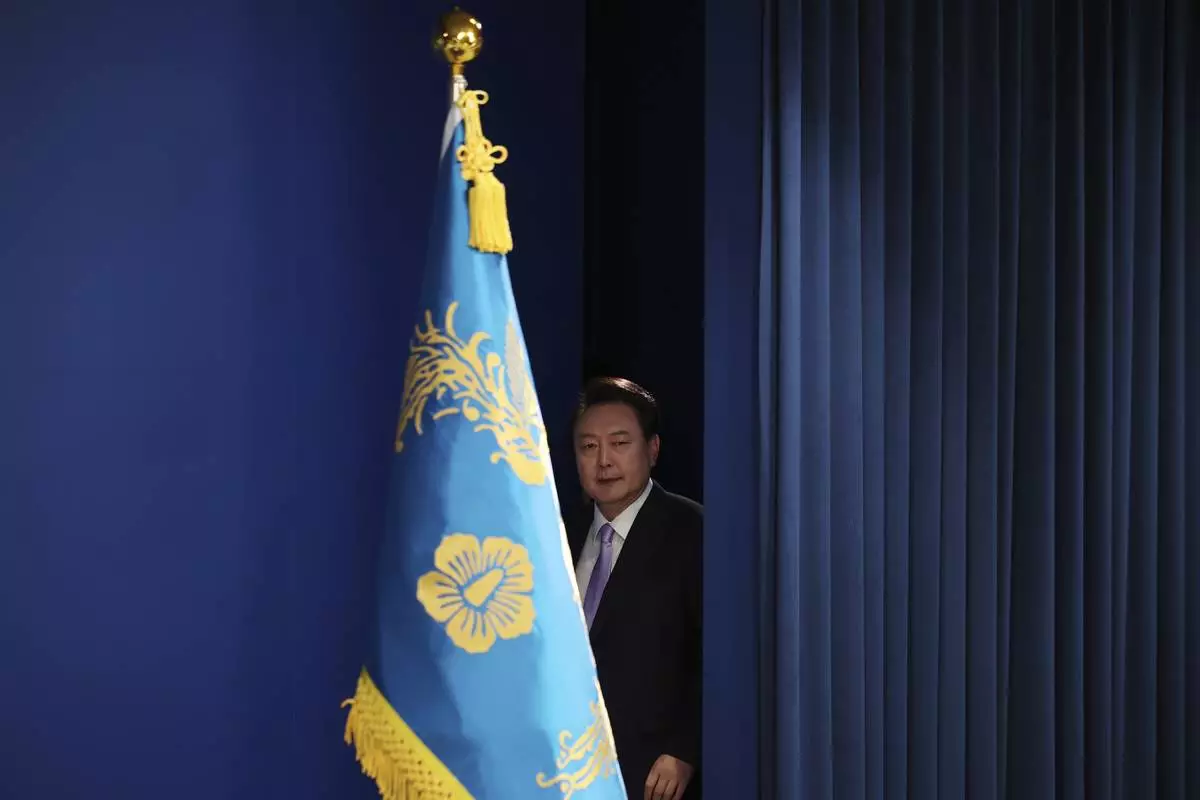
South Korean President Yoon Suk Yeol arrives for a news conference at the Presidential Office in Seoul, South Korea, Thursday, Nov. 7, 2024. (Kim Hong-Ji/Pool Photo via AP)
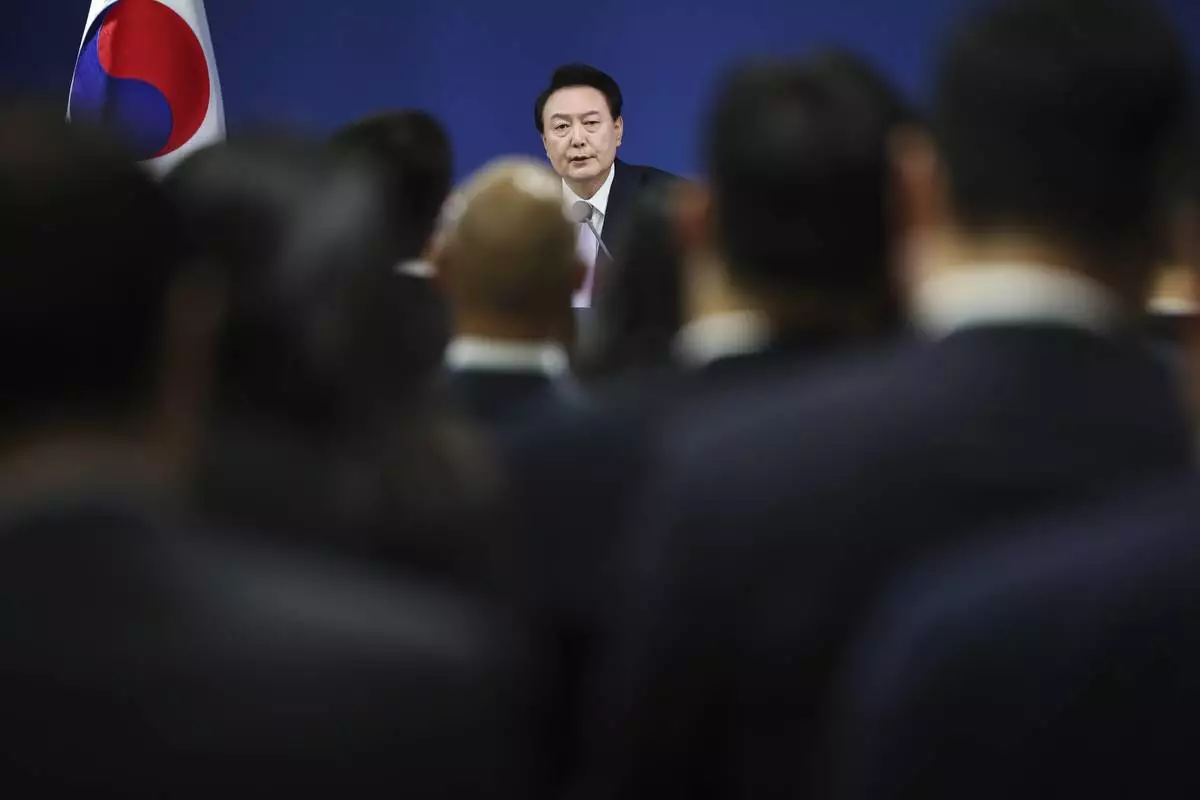
South Korean President Yoon Suk Yeol answers a reporters' question during a news conference at the Presidential Office in Seoul, South Korea Thursday, Nov. 7, 2024. (Kim Hong-Ji/Pool Photo via AP)
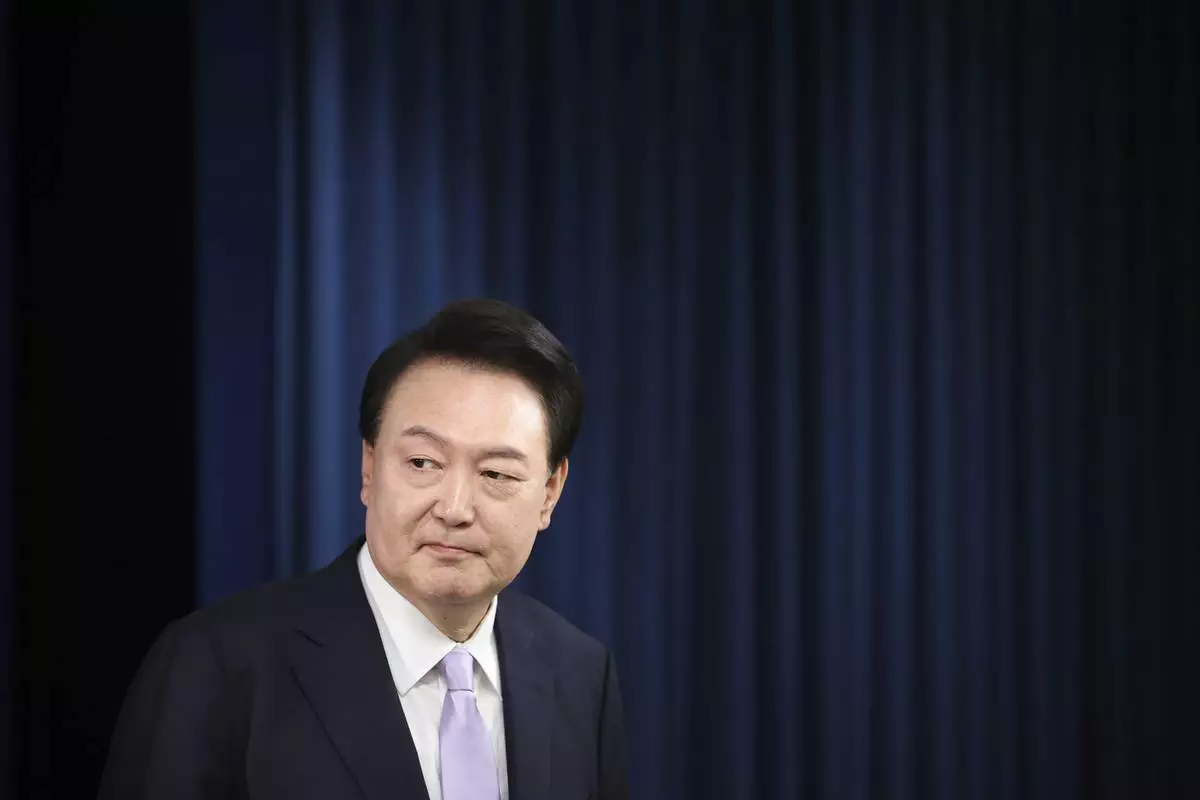
South Korean President Yoon Suk Yeol arrives for a news conference at the Presidential Office in Seoul, South Korea, Thursday, Nov. 7, 2024. (Kim Hong-Ji/Pool Photo via AP)
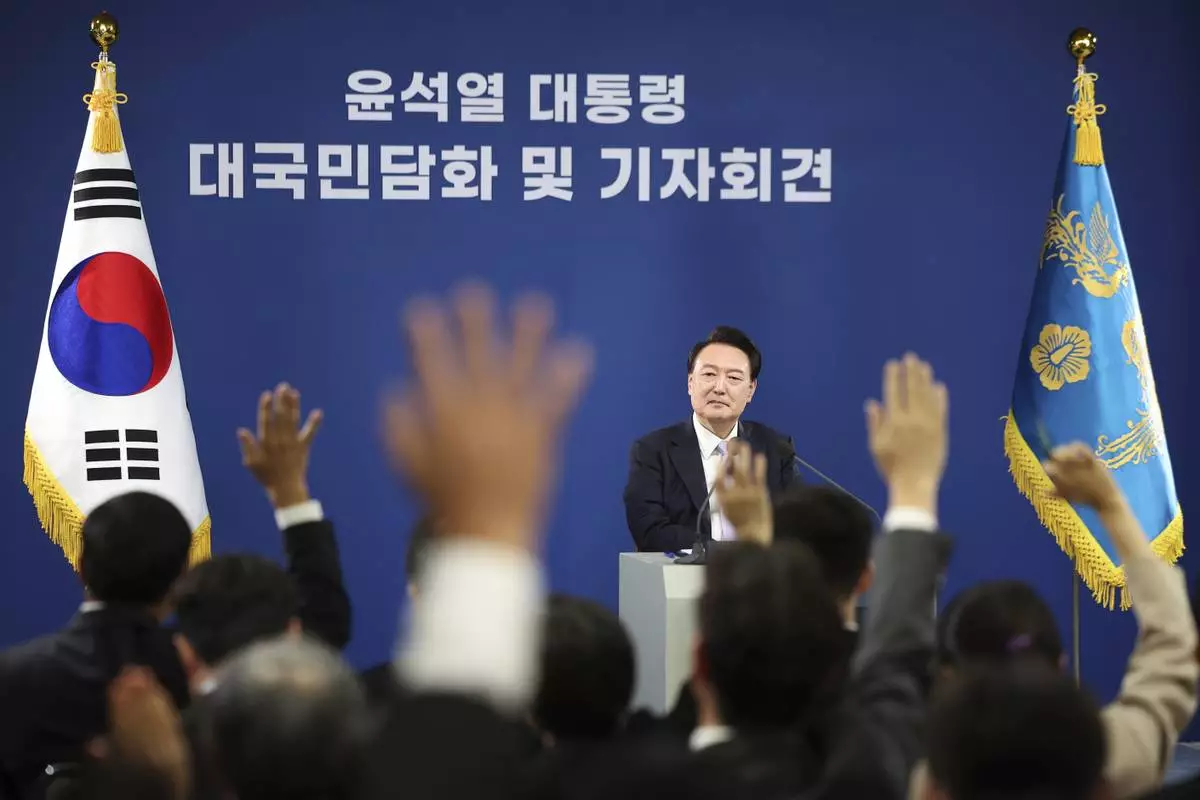
South Korean President Yoon Suk Yeol attends a news conference at the Presidential Office in Seoul, South Korea, Thursday, Nov. 7, 2024. (Kim Hong-Ji/Pool Photo via AP)
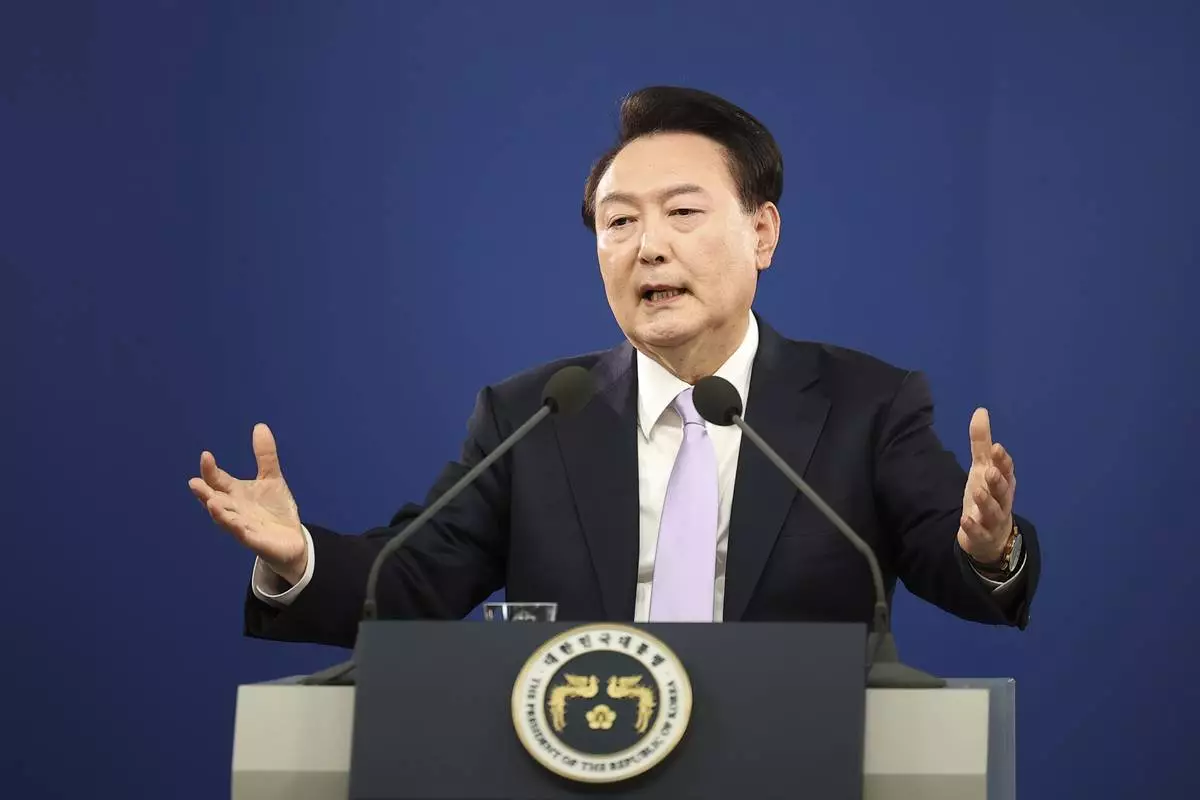
South Korean President Yoon Suk Yeol answers a reporters' question during a news conference at the Presidential Office in Seoul, South Korea Thursday, Nov. 7, 2024. (Kim Hong-Ji/Pool Photo via AP)
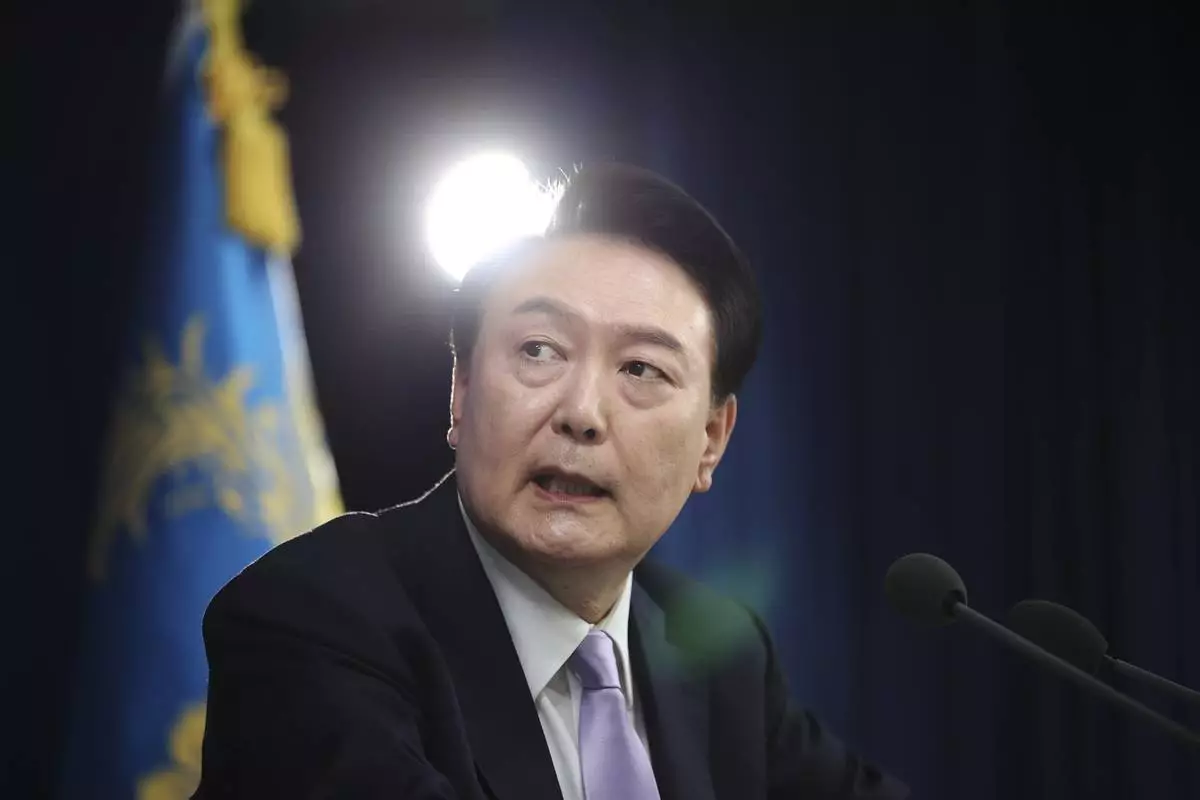
South Korean President Yoon Suk Yeol answers a reporters' question during a news conference at the Presidential Office in Seoul, South Korea Thursday, Nov. 7, 2024. (Kim Hong-Ji/Pool Photo via AP)
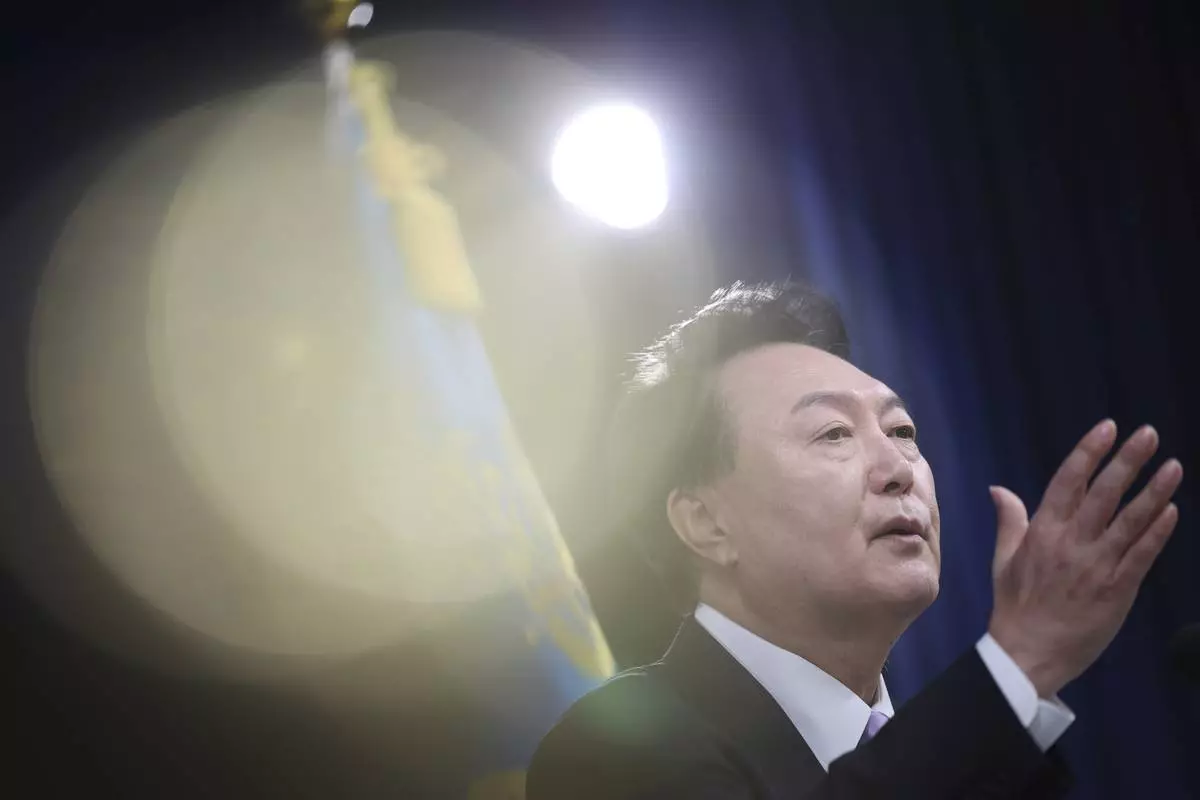
South Korean President Yoon Suk Yeol answers a reporters' question during a news conference at the Presidential Office in Seoul, South Korea Thursday, Nov. 7, 2024. (Kim Hong-Ji/Pool Photo via AP)


